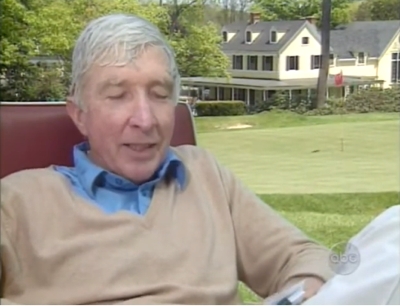Fairway Philosophy blogger Matthew Chominski had Updike on the mind this past week. Two of his posts were devoted to Updike the golfer.
In an April 27, 2023 post, “Golf and the Shortness of Life,” Chominski wrote, “The great American author and golf devotee was once in the presence of a young woman who informed him that life was too short ‘for crossword puzzles and for golf.’ His responsory ruminations are worth quoting at length:
“‘The nature of humankind must be considered before we decide what life is too short for. Is it too short for sex, for instance, or is sex its business? Men and women need to play, and it is a misused life that has no play scheduled into it. Crossword puzzles, even, have a fit place in some psychological budgets. With them, as with golf, we set ourselves to solve a puzzle nature has not posed. Nothing in natural selection demands that we learn how to beat a small ball into a hole with a minimum number of strokes. . . . The great green spaces of a golf course remember the landscape in which the human animal found his soul. Certainly the sight of our favorite fairway wandering toward the horizon is a balm to the eyes and a boon to the spirit. Our mazy progress through the eighteen is a trek such as prehistoric man could understand, and the fact that the trek is fatiguingly long constitutes part of its primitive rightness.'” Read the whole post.
Then, on an April 29, 2023 post titled “Golf’s Peculiar Bliss,” Chominski reminded golfers and Updike fans of a video clip in which John Updike was filmed on his home course, Myopia Hunt Club, intercut with footage and a voiceover of Updike reading from his golf essays.




